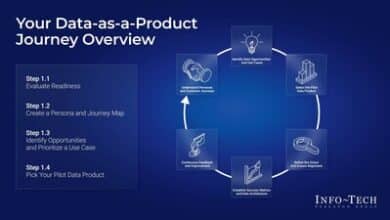As small businesses are continually looking to streamline their operations and focus on core competencies, outsourcing has emerged as a practical solution. Knowing when and what to outsource can significantly increase the efficiency and productivity of any business. Let’s delve into the aspects of outsourcing and explore how it benefits small businesses.
Understanding Outsourcing: A Basic Overview
Outsourcing refers to the business strategy where companies delegate some of their tasks or functions to external agencies or professionals. It spans a wide range of services, from simple tasks like data entry to complicated ones like software development or digital marketing. Small businesses can outsource both their core and non-core functions to focus more on their strategic goals.
For instance, a startup might outsource their customer service to maintain a 24/7 support line without having to employ night-shift staff. Therefore, the key to optimizing outsourcing is understanding what aspects of the business can be entrusted to external experts.
Why Small Businesses Should Embrace Outsourcing
Small businesses often struggle to manage everything alone. By outsourcing non-core functions, business owners can devote their time and resources to what they do best: developing their products or services. Moreover, hiring an outside specialist for certain tasks can lead to better work quality, as the outsource partner would have deeper expertise in that field.
Furthermore, outsourcing proves to be cost-effective in the long run. Instead of investing in in-house resources, software, and training, businesses can access superior skills and technology through outsourcing. Also, it provides flexibility in scaling the team up or down based on the business requirement.
How Outsourcing Improves Efficiency and Productivity
One of the key benefits of outsourcing is its impact on efficiency and productivity. When businesses outsource repetitive or specialized tasks, they can focus on critical areas that drive their growth. For example, a digital marketing agency can help small businesses leverage SEO techniques to boost their online presence while the business works towards improving the products or services offered.
Also, by outsourcing, businesses can leverage external expertise and get high-quality outputs in a shorter time frame. Thus, it facilitates better workload management, leading to more efficient operations and higher productivity.
Examples of Tasks to Outsource for Greater Impact
Deciding what tasks should be outsourced depends on the specific needs of the business. However, some common areas where outsourcing is more effective include:
- IT services: This includes website development, software development, and IT support.
- Digital marketing: Tasks like SEO, content creation, and social media management are often outsourced by small businesses.
- Customer service: Outsourcing customer service can ensure 24/7 support for customers.
- Accounting and finance: CFO services, bookkeeping, and payroll are areas where an external expert can add value.
- Human Resources: HR functions, like recruitment and benefits administration, are also commonly outsourced.
Transitioning to Outsourcing: Tips and Strategies
Embracing outsourcing does not happen overnight. It requires strategizing and planning. First, identify the non-core tasks that can be outsourced and find reliable vendors that specialize in those areas. Consider outsourcing as a strategic partnership rather than a transactional relationship. It is crucial to clearly communicate your expectations and maintain an open line of communication with the outsourcing partner.
Switch gradually rather than all at once. Monitor the performance regularly and use feedback for continuous improvement. Remember, the goal of outsourcing is to streamline your business operations, boost efficiency and productivity, and ultimately drive growth.
In conclusion, outsourcing is an effective tool for small businesses to streamline operations, maximize efficiency, and drive growth. It enables them to tap into specialist expertise, manage workload better, and focus on their core competencies. Key areas for outsourcing often include IT services, digital marketing, customer service, accounting, and HR functions. With strategic planning and careful implementation, businesses can successful transition to outsourcing and achieve significant benefits.
If your business is seeking a reliable platform for outsourcing, Fiverr, the world’s largest marketplace for freelance services, offers an array of professionals across various domains right at your fingertips. No matter what your requirement is – be it web development, graphic design, digital marketing, writing, or any other service, you can find a skilled professional on Fiverr. Available in seven languages and providing over 500 digital services, Fiverr is a one-stop solution for all your outsourcing needs. Visit the Fiverr website to explore more and start your successful outsourcing journey today!
Don’t miss our latest Startup guide: Elevating Your Business with Strategic Outsourcing



